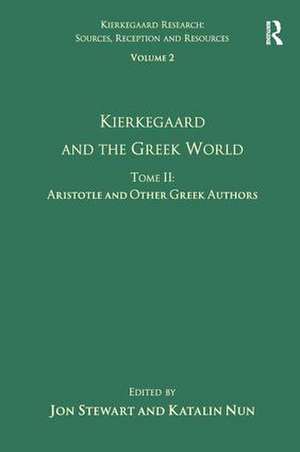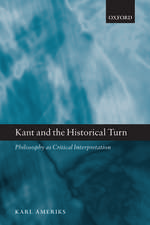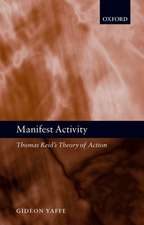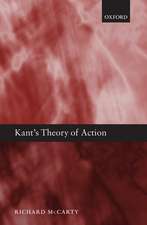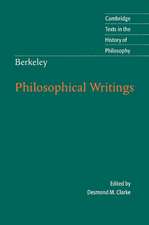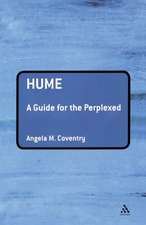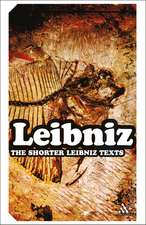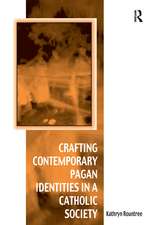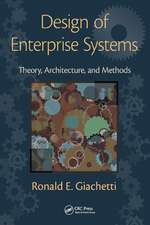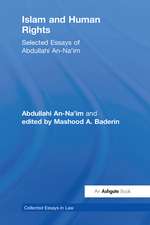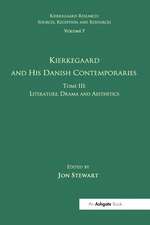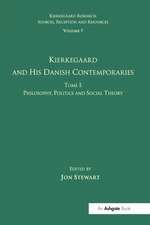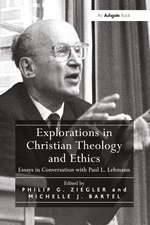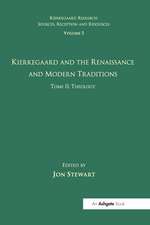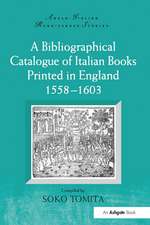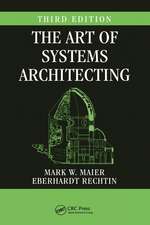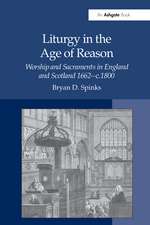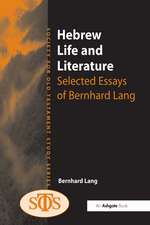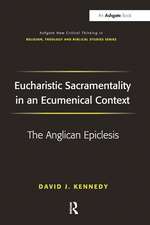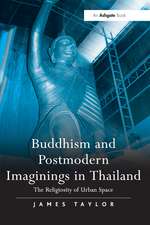Volume 2, Tome II: Kierkegaard and the Greek World - Aristotle and Other Greek Authors: Kierkegaard Research: Sources, Reception and Resources
Autor Katalin Nun Editat de Jon Stewarten Limba Engleză Hardback – 28 feb 2010
| Toate formatele și edițiile | Preț | Express |
|---|---|---|
| Paperback (1) | 391.40 lei 6-8 săpt. | |
| Taylor & Francis – 30 iun 2021 | 391.40 lei 6-8 săpt. | |
| Hardback (1) | 825.63 lei 6-8 săpt. | |
| Taylor & Francis – 28 feb 2010 | 825.63 lei 6-8 săpt. |
Din seria Kierkegaard Research: Sources, Reception and Resources
-
 Preț: 325.78 lei
Preț: 325.78 lei - 8%
 Preț: 376.64 lei
Preț: 376.64 lei - 18%
 Preț: 1055.21 lei
Preț: 1055.21 lei - 18%
 Preț: 1065.78 lei
Preț: 1065.78 lei - 30%
 Preț: 820.71 lei
Preț: 820.71 lei - 18%
 Preț: 1064.19 lei
Preț: 1064.19 lei - 18%
 Preț: 1060.87 lei
Preț: 1060.87 lei - 25%
 Preț: 826.15 lei
Preț: 826.15 lei - 18%
 Preț: 1065.96 lei
Preț: 1065.96 lei -
 Preț: 469.34 lei
Preț: 469.34 lei - 18%
 Preț: 1056.95 lei
Preț: 1056.95 lei - 15%
 Preț: 703.76 lei
Preț: 703.76 lei - 18%
 Preț: 1117.49 lei
Preț: 1117.49 lei - 18%
 Preț: 1054.71 lei
Preț: 1054.71 lei - 18%
 Preț: 1116.27 lei
Preț: 1116.27 lei -
 Preț: 381.28 lei
Preț: 381.28 lei - 31%
 Preț: 765.59 lei
Preț: 765.59 lei - 30%
 Preț: 820.32 lei
Preț: 820.32 lei -
 Preț: 469.34 lei
Preț: 469.34 lei - 18%
 Preț: 1061.81 lei
Preț: 1061.81 lei - 18%
 Preț: 1062.31 lei
Preț: 1062.31 lei - 18%
 Preț: 1059.18 lei
Preț: 1059.18 lei - 18%
 Preț: 1057.57 lei
Preț: 1057.57 lei - 18%
 Preț: 1057.75 lei
Preț: 1057.75 lei - 18%
 Preț: 1057.89 lei
Preț: 1057.89 lei -
 Preț: 489.26 lei
Preț: 489.26 lei - 30%
 Preț: 768.82 lei
Preț: 768.82 lei - 18%
 Preț: 1116.77 lei
Preț: 1116.77 lei - 18%
 Preț: 1112.03 lei
Preț: 1112.03 lei - 18%
 Preț: 1067.35 lei
Preț: 1067.35 lei - 18%
 Preț: 1056.00 lei
Preț: 1056.00 lei - 18%
 Preț: 1058.65 lei
Preț: 1058.65 lei - 31%
 Preț: 767.80 lei
Preț: 767.80 lei - 18%
 Preț: 1064.98 lei
Preț: 1064.98 lei - 30%
 Preț: 769.44 lei
Preț: 769.44 lei - 18%
 Preț: 1058.86 lei
Preț: 1058.86 lei - 30%
 Preț: 820.32 lei
Preț: 820.32 lei - 28%
 Preț: 823.17 lei
Preț: 823.17 lei - 30%
 Preț: 821.94 lei
Preț: 821.94 lei - 28%
 Preț: 821.53 lei
Preț: 821.53 lei - 18%
 Preț: 1060.25 lei
Preț: 1060.25 lei - 18%
 Preț: 1055.84 lei
Preț: 1055.84 lei - 26%
 Preț: 850.73 lei
Preț: 850.73 lei - 18%
 Preț: 1054.71 lei
Preț: 1054.71 lei - 25%
 Preț: 854.26 lei
Preț: 854.26 lei
Preț: 825.63 lei
Preț vechi: 1143.82 lei
-28% Nou
Puncte Express: 1238
Preț estimativ în valută:
157.99€ • 166.13$ • 130.54£
157.99€ • 166.13$ • 130.54£
Carte tipărită la comandă
Livrare economică 16-30 aprilie
Preluare comenzi: 021 569.72.76
Specificații
ISBN-13: 9780754669821
ISBN-10: 0754669823
Pagini: 352
Dimensiuni: 156 x 234 x 26 mm
Greutate: 0.77 kg
Ediția:New.
Editura: Taylor & Francis
Colecția Routledge
Seria Kierkegaard Research: Sources, Reception and Resources
Locul publicării:Oxford, United Kingdom
ISBN-10: 0754669823
Pagini: 352
Dimensiuni: 156 x 234 x 26 mm
Greutate: 0.77 kg
Ediția:New.
Editura: Taylor & Francis
Colecția Routledge
Seria Kierkegaard Research: Sources, Reception and Resources
Locul publicării:Oxford, United Kingdom
Cuprins
Contents: Part I Aristotle: Organon and Metaphysics IV: the first principles of logic and the debate about mediation, Håvard Løkke and Arild Waaler; Physics and Metaphysics: change, modal categories and agency, Håvard Løkke and Arild Waaler; Nichomachean Ethics: ignorance and relationships, Håvard Løkke; Poetics: the rebirth of tragedy at the end of modernity, Daniel Greenspan; Rhetoric: eloquence, faith and probability, Heiko Schulz; Cumulative Aristotle bibliography, Katalin Nun. Part II Other Greek Philosophers: Diogenes Laertius: Kierkegaard's source and inspiration, Nicolae Irina; The Eleatics: Kierkegaard's metaphysical considerations of being and motion, Jon Stewart; Heraclitus: Presocratic ideas of motion, change and opposites in Kierkegaard's thought, Finn Gredal Jensen; The Skeptics: Kierkegaard and classical skepticism, Anthony Rudd; The Sophists: Kierkegaard's interpretation of Socrates and the Sophists, K. Brian Söderquist; The Stoics: Kierkegaard on the passion for apathy, Rick Anthony Furtak. Part III Poets, Dramatists and Historians: Aeschylus: Kierkegaard and early Greek tragedy, Finn Gredal Jensen; Euripides: Kierkegaard and the ancient tragic heroes, Nicolae Irina; Herodotus: traces of The Histories in Kierkegaard's writings, Finn Gredal Jensen; Hesiod: Kierkegaard and the Greek gods, Nicolae Irina; Homer: Kierkegaard's use of the Homeric poems, Finn Gredal Jensen; Plutarch: a constant cultural reference, Nicolae Irina; Sophocles: the tragic of Kierkegaard's modern Antigone, Nicolae Irina; Indexes
Notă biografică
Jon Stewart is an Associate Research Professor in the Søren Kierkegaard Research Centre at the University of Copenhagen, Denmark.
Descriere
Tome II features articles dedicated to the Kierkegaard's Greek sources aside from Socrates, beginning with a section containing several articles on different aspects of Aristotle's writings that influenced his thought. This is followed by another section featuring analyses of other Greek philosophers and philosophical schools, which were important for him. Finally, a third section explores Kierkegaard's uses of a handful of Greek poets, dramatists and historians.
